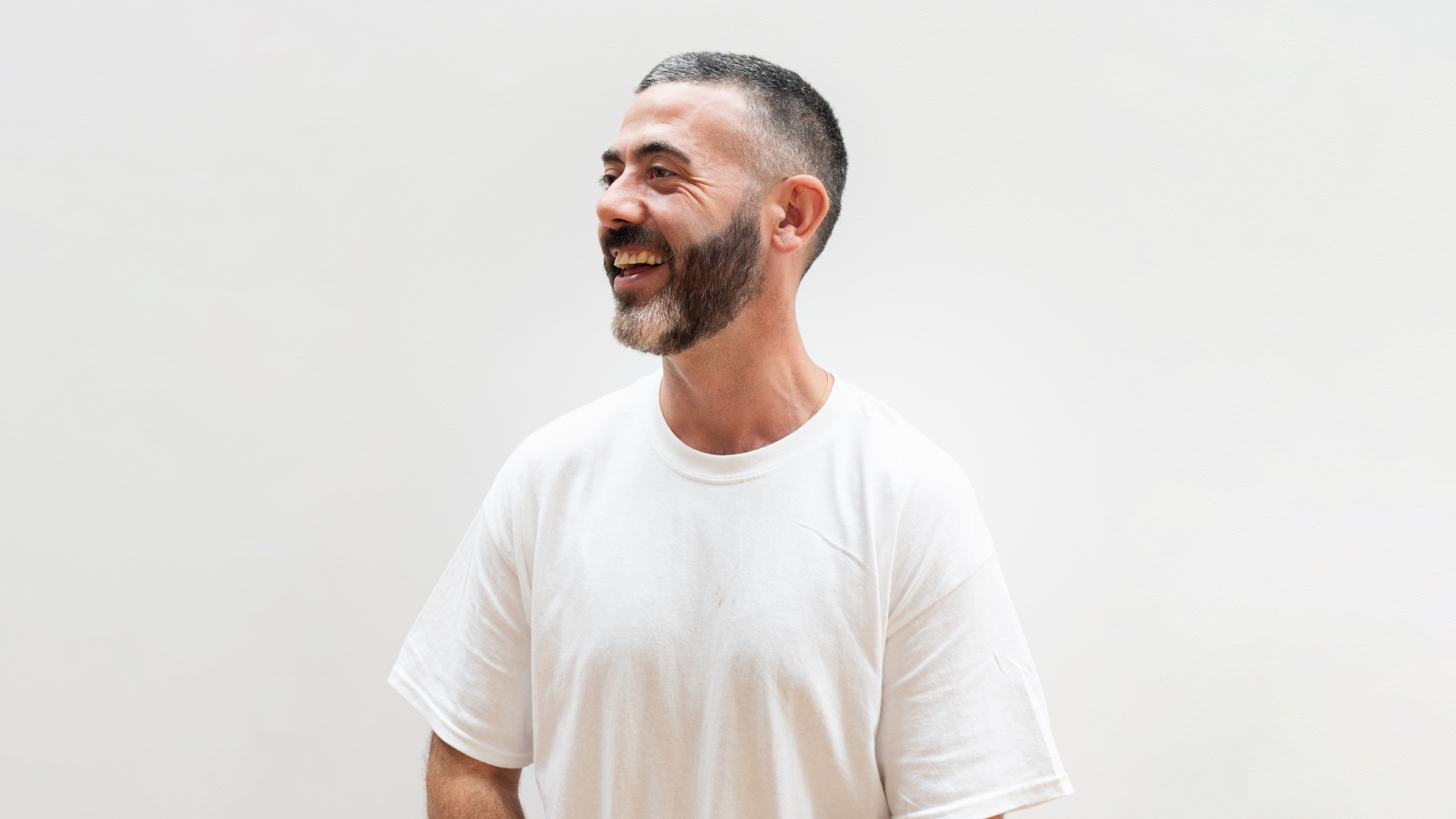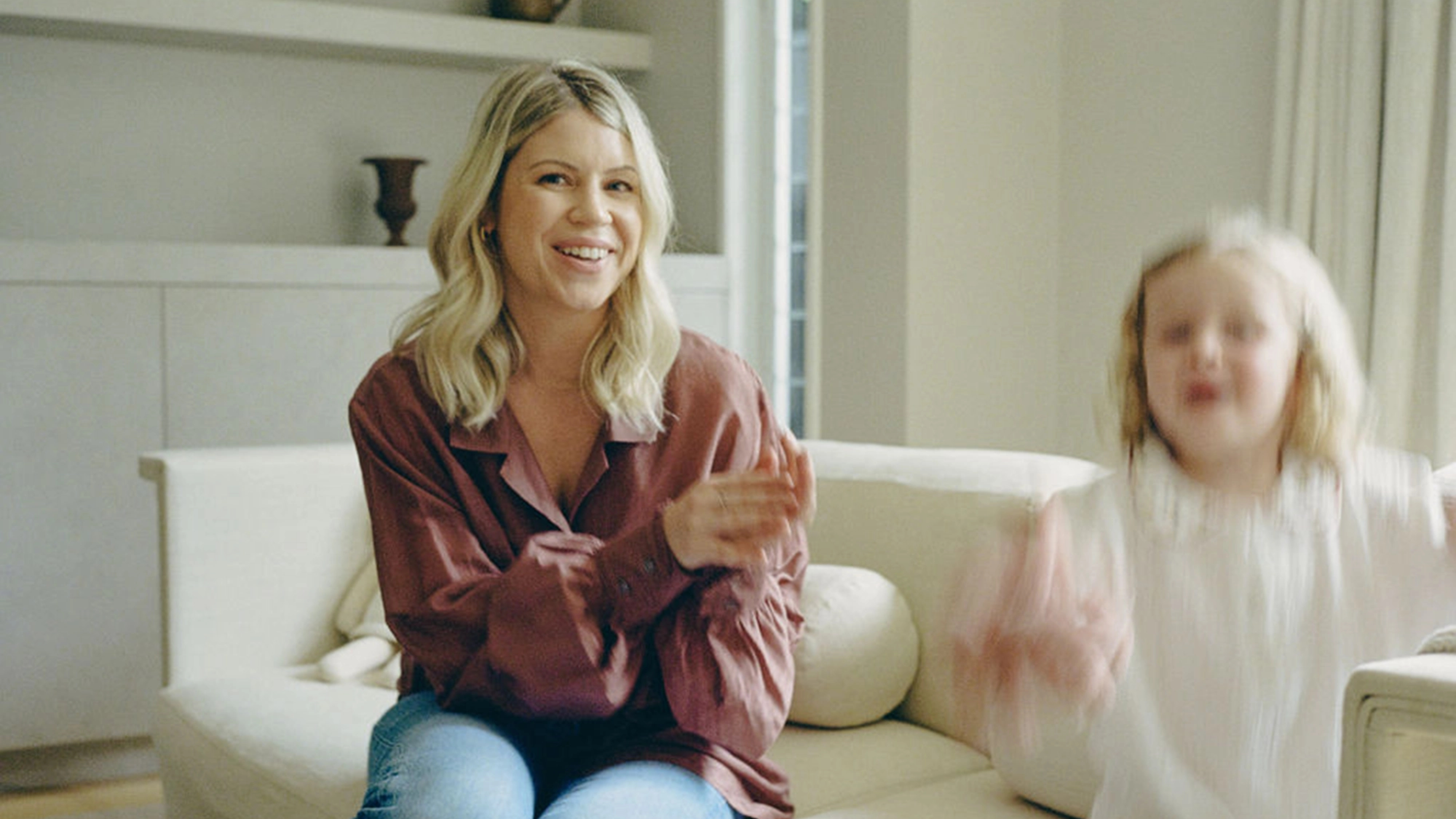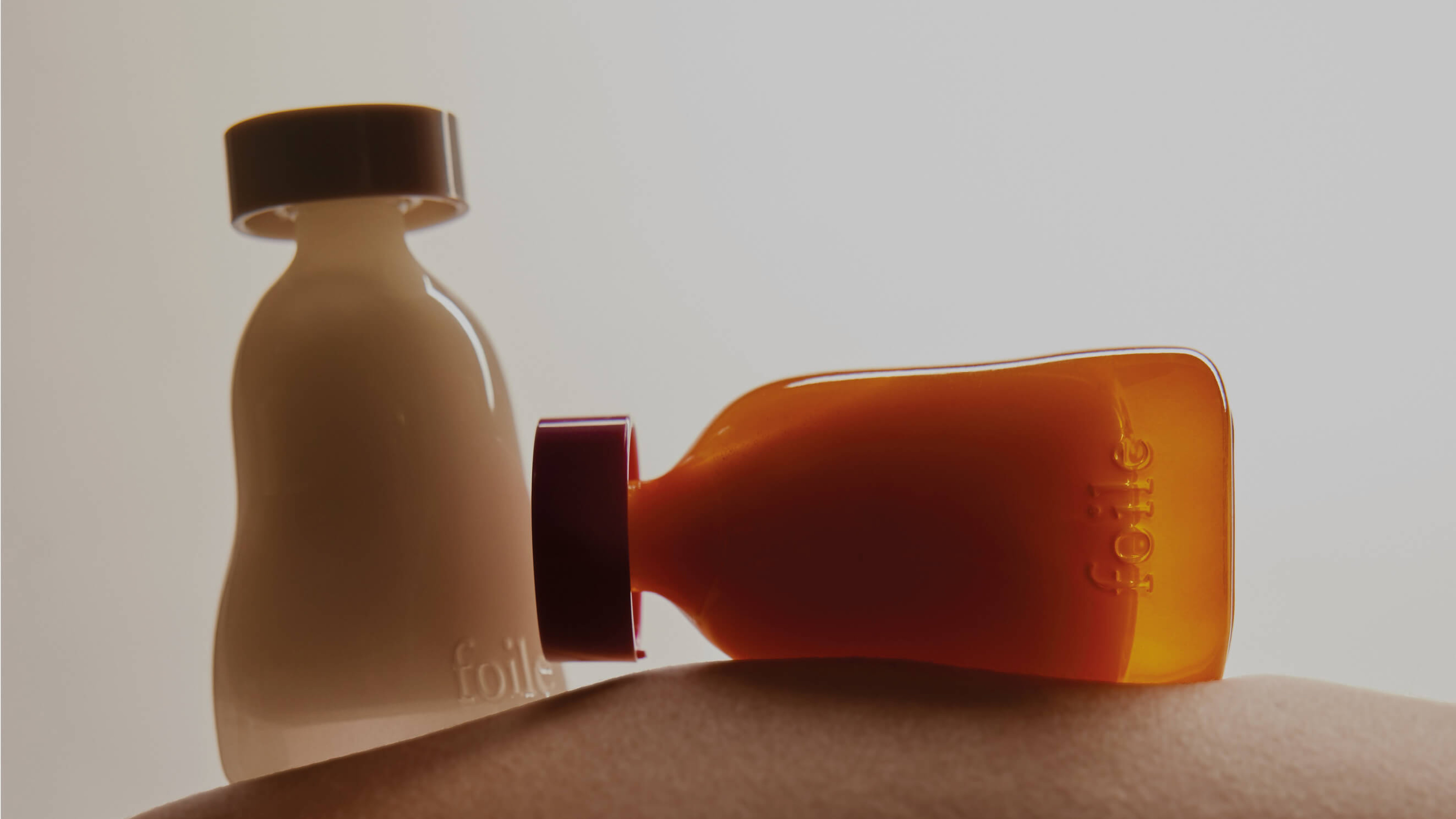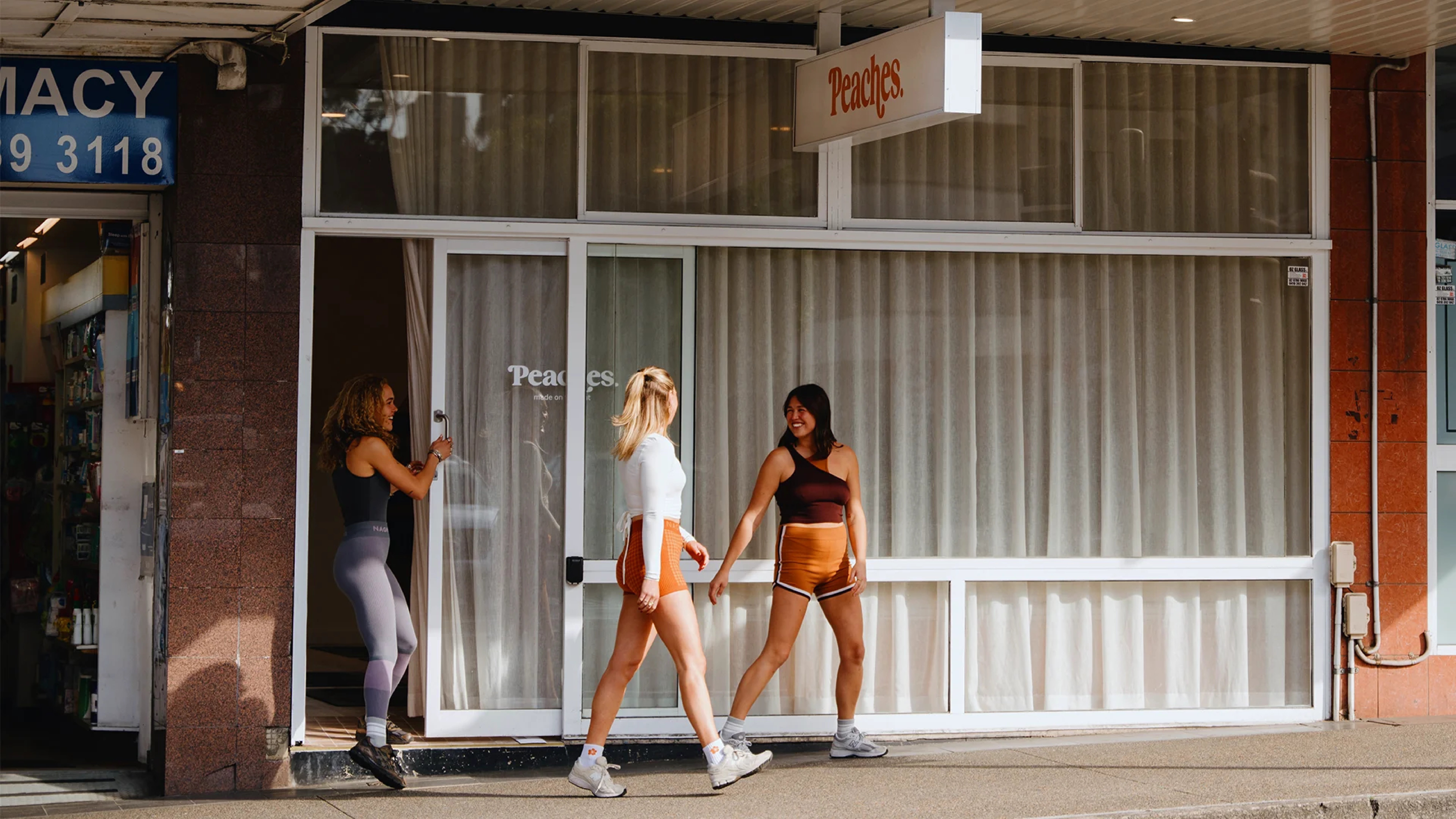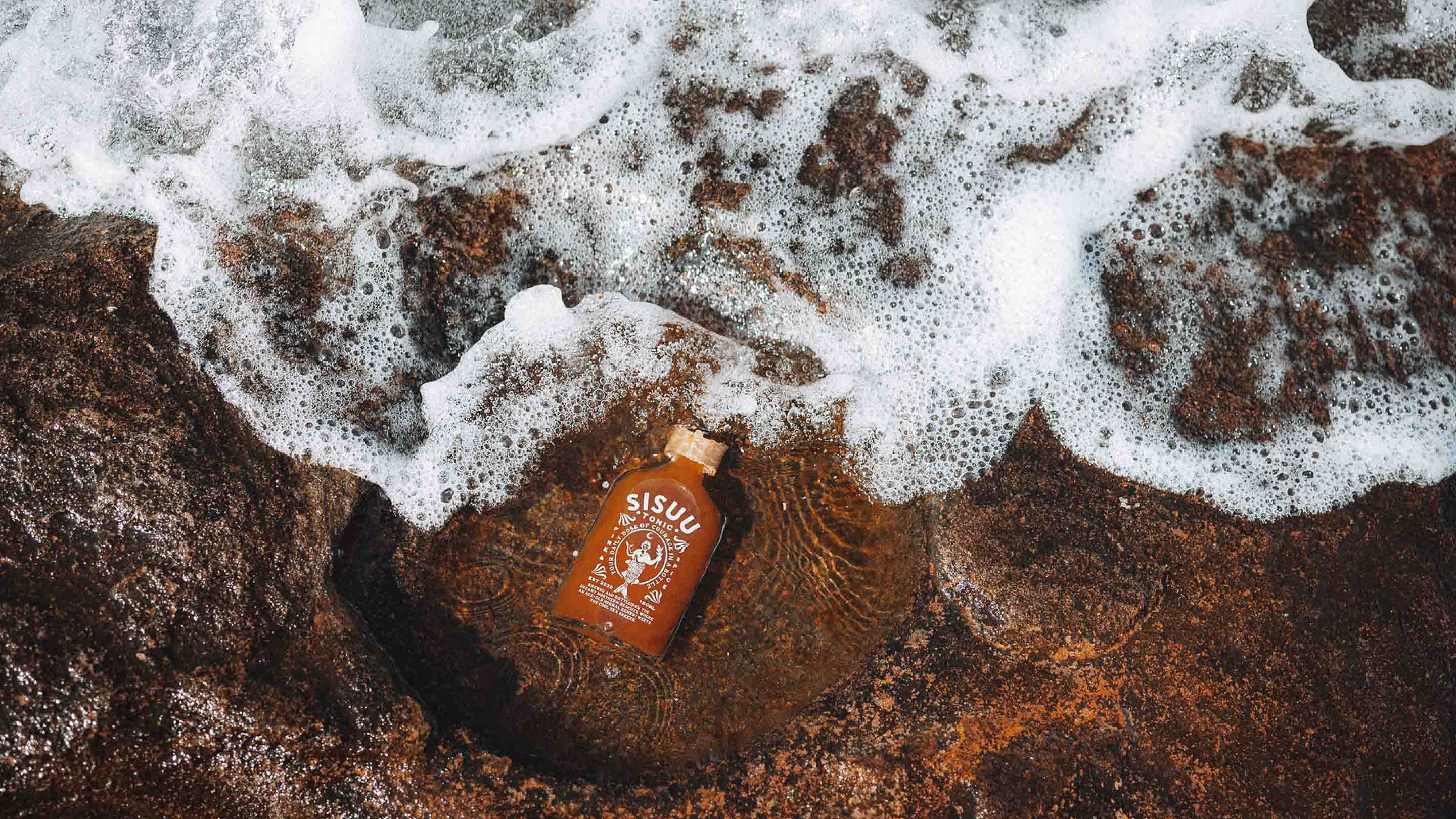Good Form is a series that explores the daily rhythms, rituals, and routines that bring wellness into our homes. In this edition we’re joined by Neil O'Sullivan co-founder of Nimbus Co.
Neil O'Sullivan is the kind of person who'll tell it to you straight: no wellness Instagram fantasy here, just the messy, honest truth of building better habits while juggling kids, businesses, and the constant hum of entrepreneurial life. As co-founder of Nimbus Co, Australia's infrared sauna sanctuary, and host of the mental health podcast These Lads Are Mental, Neil has spent the last decade unpacking what actually works when it comes to wellbeing. Born in Ireland and now calling Australia home, he's the guy who moved from Bondi to Brisbane to Melbourne, chasing both business dreams and family rhythms, all while learning that sometimes the most profound wellness tools are the simplest ones—and completely free.
In our conversation, Neil strips away the wellness industry gloss to reveal what really matters: the unglamorous morning routine of water and breathing, the sanctuary found in a sauna box within a box, and the life-changing power of simply deciding to talk. From his 90-day health reset that dropped his resting heart rate from 58 to 49, to the moment he realised panic attacks could become superpowers, Neil's approach to wellness is refreshingly real. He's the entrepreneur who'll admit to watching Selling Sunset in the sauna some days, the former semi-professional soccer player who now squeezes in five-minute YouTube workouts, and the mental health advocate who learned that vulnerability shared is where the real magic happens.

Neil O'Sullivan
How do you start each day?
Let me be frank from the get-go. There are things I aspire to do each morning, but I'm going to be honest to say I don't always get there. We have to be a bit more real than what we hear daily, whether it's online or on social media. Currently, I've been really trying to work on pausing before I start. Before the phone, of which I am shocking at - it's hard not to 'be on' 24/7 as a business owner, especially with my past life in PR and advertising working with global clients. That used to be my stick, to be the guy you could always rely on. But it's not good for your health. I've made some small and basic rules that help me start the day right. It starts the night before, turn your phone to flight mode. When I wake, literally, I get up, go to the loo, take two big glasses of water, then weigh myself. I formed this habit from my good mate, and podcast co-host, Gary Rafferty, whilst I was doing my recent 90-day health reset.
Next, the big change was not hitting a coffee straight up. For someone who struggles with anxiety and high cortisol, taking a coffee first thing is pretty much the worst thing you could do. It spikes my adrenals and is an awful way to start your day. I eat first, and try to leave at least 30 mins from when I rise to when I have coffee. For my 90-day reset, I was off caffeine the entire time, more on that later. If I'm best in class with myself, from here, I'll take a moment to check in with myself. Some days that's breathwork, other days it's a cold shower or walk to the ocean.
I think we forget how much of life we live on autopilot. That morning reset — even for 3 minutes — helps me start consciously, not reactively. I'll do box breathing or a physiological sigh—two sharp inhales through the nose, add a sneaky extra fill, and then a long exhale. It zaps me out of autopilot and sets me up with surgical focus for the day. Resetting your neural pathways is a really simple and effective way to kickstart your day. There are heaps of things you can do but here's a little trio I tried for a month recently:
After you wake, pee, and have your water, do this:
— Brush your teeth with your opposite hand. It's strange at first, but 30 days in, you'll already start to see how both sides of the brain work
— Say "I love you" into the mirror x10 times. Weird, I know, you'll find this harder to do than you think!
— Take 25x big deep (and loud) sharp inhales and exhales. Really lean into it, the more noise the better. Maybe prompt your partner first. I didn't, and my wife came running into the bathroom, asking if all was alright.
Literally, that takes less than 3 minutes, do it for 30 days, and just see the difference. An even faster way to reset your pathways is to take a cold shower.
what's something you consume daily that improves your life?
Being in the sauna game, hydration is my anchor. Every morning, I take water the minute I wake up. If I'm being really good, I'll take a shot of Apple Cider Vinegar, which I absolutely hate. The taste is always a struggle.
I have a condition called MTHFR, which is a gene that makes an enzyme which helps process folate, a type of Vitamin B. I struggle to absorb it and break it down, which comes with a 70% loss of function. In simple terms, for me it means I should have a low sugar diet and avoid anything that's going to make it harder for my body to absorb nutrients. Technically, alcohol is out, gluten is out, and sugar is not ideal. I did a full cleanse around this protocol, which I started on 1 January this year for three months. The results were drastic: I lost 9 kilos, my resting heart rate went from 58 to 49 and my HRV doubled. It's also why we started Nimbus—saunas are the perfect accompaniment for my condition to help my body speed up the detoxification process.
I'm not a major supplement user as I find it gets too hard to stay on top of it all, and you start to beat yourself up when you're not on top of it. I do have some staples, though: high‑quality electrolytes are a must for me. Of course, I use our own Nimbus Cloud Form, mainly because it's natural and as a family we try to be 90% natural in all products we use. Liposomal Vitamin C is a daily for me, too. Our whole ethos at Nimbus is about preventative health—if you do things regularly, you'll avoid long-term illnesses and disease.
To recap, it's two glasses of water, Apple Cider Vinegar, then eat, then some electrolyte, and if still hungry, I'll make a smoothie or protein shake. It's simple, basic lifestyle choices, but if done daily, correctly and in the right order, they can make a huge difference. At night, my routine is even simpler: magnesium. Love the taste, feels like a treat, and helps with sleep. Vitamin C and magnesium should be the absolute minimum that all Australians should have in their daily routine.
what physical movement do you practice?
It's less trend-based and more a question of 'what can I squeeze into my day'. This might sound cliché but as a business owner and entrepreneur, routine—or sometimes lack thereof—is key. I used to think I was busy when I worked in corporate, but never did I imagine how much I'd miss clocking off at 5pm on Friday. You're always-on as a founder and owner, and then when you add kids into the mix, it gets even harder.
Our family has multiple businesses, with my wife and Nimbus co-founder Su also owning Foile skincare with dear friend Alexandra Grima. I have a podcast too on mental health, and between daycare pick-ups and drop-offs and constant travelling, being honest, I've struggled over the last three years. Personally, since COVID it's felt like one constant juggernaut, one thing after another. Our dearest Sonny was born, parents both working from home, which has seen children of that era struggle with separation more than any other generation before. Three years on, we still face the daily battle of "where are you going, daddy, more work?" Breaks your heart.
Personally, since COVID it's felt like one constant juggernaut, one thing after another. Our dearest Sonny was born, parents both working from home, which has seen children of that era struggle, I've found, with separation more than any other generation before. Three years on, we still face the daily battle and questioning of "where are you going, daddy, more work?" Breaks your heart. We really try to be present, which most modern parents are, and thus excites me in relation to the affection this generation has. But, it has a price and toll.
We moved to Brisbane two years ago from Bondi and found ourselves out of routine and in flux for a good six months. This resulted in me literally doing home workouts from YouTube. You'll be surprised how much you can find there, and totally free. I do laugh, though. I started with 30-minute workouts, then 20 minutes, then 15. I've even done five-minute ab sessions if that's all the time I have. I was a semi-professional soccer player my whole life and only recently retired at 38. It's been a bit of a mid-life crisis going from training three times a week to not having that fixture in your life.
But the one thing that really has stayed with me all my life is the flow of weights, ocean swims, road running, then sauna or cold plunge. I track recovery and HRV via Whoop, and am obsessed. I honestly think everyone should have a Whoop, and that's from someone who is quite analog and not a 'wearable tech' guy. The real measure is accountability and presence. How can you improve, or in some cases get back on track, if you're not measuring what you're doing?
My big markers here are my sleep, what's my HRV at, and where's my resting heartbeat at. I see this as my general longevity measure. If it's high, I'm going to put more pressure on my heart and body and I need to get it down. We did a big research piece with Whoop earlier this year with 40 Australians who we gave a Whoop and a month-long sauna and ice bath protocol based off Dr Susanna Soeberg's research. While the sauna results were amazing, what was even more interesting was everything else in between. For example, one person's top tool when it came to recovery was 'sleeping with their dog', and another had 'sexual activity' as their number two marker for recovery. Good on them! For me, if I sleep better, I feel sharper and can connect deeper—it's game on. I'm a very emotional being, and if I don't get sleep, it comes out in mood swings, being short-tempered and combative.

A Nimbus Co Sauna
what are your headspace habits?
Breathwork and cold plunges literally saved me. I've struggled with depression, anxiety, panic attacks, and even agoraphobia. As I've shared on the podcast These Lads Are Mental, I was bullied as a kid for my appearance, and it took me 30-odd years to realise how insecure I really was. Breathwork is the biggest ally I've ever had.
While saunas and ice baths support mental health too, they help more from consistency and by doing them regularly. They don't help in the moment if you're about to walk into a boardroom to do a pitch. You can't whip out an ice bath on the spot and dive in. What they do, which I learned from my Ayurvedic training with Andrew Marsh in Bondi, is that mindfulness, like saunas and ice baths, as well as meditation, helps bring the levels of the ocean down. Visualise that for a moment: if you practice these things, the water levels in your cup lower. You're less likely to spill over the edge and have a panic attack if your levels are low.
Having said that, if you are in a pickle, breathwork is one thing you can whip out of your pocket, so to speak. Box breathing—four-second inhale, four-second hold, four-second release, and four-second hold on the release—is as simple as that. Rinse and repeat 3-4 times. You can duck to the toilet, usually anywhere to do this, or even in the green room, done silently. Same with cold water: a quick splash in the sink in a bathroom can zap you back to equilibrium fast. I also do box breathing late at night in bed if I have a million things swirling around in my head.
The other tool in my breathwork toolkit is the physiological sigh, which has been shown to be the quickest and fastest way to immediately reduce your heart rate, and ultimately your anxiety. To do this, simply take a sharp inhale, and at the top, sneak in another zip of breath. Then do a long exhale. Rinse and repeat, three times. That's it. But honestly, how good and free is breathwork? The Dalai Lama says you don't have to be sitting perfectly in a quiet place; you can meditate or breathe on a busy bus at peak hour. There's no good or bad time to do it. While saunas and ice baths are all great and add to the mix, and I shouldn't say this for my own business's sake, breathwork and cold water are literally free. I've spent 10 years in wellness, and those two alone have helped me more than any other wellness modality.
Outside of those go-tos, I also speak openly—because hosting These Lads Are Mental showed me how much power lies in vulnerability and vulnerability shared. Interestingly, we ask all guests on the show the same question at the end: "What is the one thing you'd recommend people do each day to improve their mental wellbeing?" And do you know what they usually say? It's the simplest and most mundane things. Walking in nature is the most common answer. Spending time with loved ones and family is another. Yes, there are many great and shiny things in wellness these days, and they're all mostly fantastic, but the answer does not lie in any one of them. It's in the purest and simplest of things, usually things that lie within everyone's grasp. That's the message I, we, Nimbus try to convey.
is there a tool, product, or practice you swear by?
Of course, I am biased, but an infrared sauna is my sanctuary. It's more than heat—it's mental and cellular declutter. It helps me detox, it helps me reset. That's why Nimbus exists: rituals that bring us home to ourselves, without needing to be wellness experts. When you come to a Nimbus, you're entering a box, then going into another box, to another box. There are degrees of separation from the outside world that I think you can't get anywhere else.
Sure, you can get mindfulness from yoga or pilates classes, but you are still being stimulated by others. When you sauna, it's a choose-your-own adventure, every single time. People laugh at me when I say that, but how often do you get to choose, and only you, what your experience is going to be? For me, sometimes it's been a shit day and sure, I watch Selling Sunset on Netflix. But other days, it's lights off, and I'm chanting. Or it's listening to 'How I built this' on Spotify, or another time it's a catch-up with a mate, or even a business meeting—yes, that has happened.
We call it the invisible benefit. It's literally the number one reason that our clients say when it comes to why they Nimbus. We release a survey every year, and it's always number one. Funny as it has nothing to do with a tangible health benefit, it's something else. Something more priceless. Outside of saunas, I say there are only a few things when it comes to wellness that have really blown my socks off and you're already going to know these: breathwork, ice baths, and the last being sound healing. If you're new to the latter, get along to one of Mary Hoang's Listen Up sessions at The Indigo Project. Mind-blowing. Or try one of Humming Puppy's famous frequency hum classes. This was a big inspiration for the creation of our own Nimbus Soundscapes, 45-minute sound journeys for your in-sauna experience.

A Nimbus Co Sauna
how do you wind down at the end of the day?
Here's the thing. Sure, wellness is "hot right now", but it's not, nor is it a new thing. This is my major gripe with the wellness industry: constantly looking for the latest fad or trend. Simple is best. Consistency is key. I've been leaning into Marcus Aurelius of late, and the Stoic way of life. We're now dating back almost 2,000 years to find that through his 'meditations', he literally speaks of the same things that we try to adhere to today.
Things like 'removing stimulation'—for modern day, that's removal of phones (flight mode, at least an hour before bed), same with TV, and even bright unnatural lights. Low lighting or mood lighting is fine. Picking your clothes out the night before is a game changer. So simple, but for someone who loves their fashion like me, it's a huge weight off your shoulders to not dilly-dally over what you're wearing the next morning.
I try to go low-stim: stretching on the floor whilst watching a bit of Netflix, journaling or writing notes for the day ahead, perhaps breathwork or a night sauna—then magnesium, magnesium and magnesium! I've also recently fallen in love with a nighttime shower just before bed. I try to keep screens dim and phones off, though I'm really bad at this. It's an addiction I'm trying to curtail. Keep lights soft—setting a tone that invites sleep rather than steals it.
Not getting adequate sleep is the number one thing that falls first when it comes to mental health. I used to be that guy who could 'sleep on four hours a day' and a few coffees and I'd be fine. But I found out I was on a slow trajectory to burnout, overwhelm, and anxiety-inducing panic attacks. If you hear of anyone saying 'I don't need sleep', do not believe them. You need 7-8 hours per day, period. If you're not getting that consistently, go seek help. It's not a weakness.
For the record, I've seen psychologists, art therapists, been on ABC's Space 22 documentary, been to marriage counselling, confronted old bullies, written letters to release trauma, the works. I've faced my fears and am still trying to. It's not about 'curing yourself' it's about being comfortable in one's skin. When you get to a place where you can turn a panic attack into a positive—it's just your body and mind saying something is wrong and you need to change—you start taking control back and using it as a superpower.
what's one small decision that has changed your life for the better?
Deciding to talk—often the simplest, but hardest thing to do first. It started first with my partner, then friends, loved ones, then specialists and qualified practitioners, then publicly via my own podcast and multiple charities I started before it, to writing about it and being on TV shows. My own mental health changed everything. What started as 'Are you OK?' rippled into a whole movement. That seed grew into a podcast, a business—it's a big part of why Nimbus started, and remains—and honestly, a deeper sense of belonging and purpose.
But caveat emptor, while I'm filled with a deep sense of pride in my openness when it comes to my own mental health, and for exploring now for over 10 years, it's not been easy. There was also a time when it sort of 'became me' in the sense that it was all I spoke about for several years. I'd meet anyone on the street and in seconds, I am telling them about me, me, me. It doesn't define you. It can impact you, affect you and more, but it's not all of you. Thoughts are only thoughts; they aren't you. I learnt a great trick, I think it was from Jim Carrey. He said something like, whenever you're having a negative thought, simply visualise that thought, say to it, you are just a thought, visually pick it up from your head and move it out, and say, you are a thought, but I am not you.
If I am being totally honest, though, the most important decision I ever made, after moving to Australia, was meeting my wife, Su. Her being a nutritionist, she opened my once naive eyes to the world, food, and the beauty in life, which ultimately then led to the creation of Nimbus itself. We wouldn't be here if we hadn't met, I wouldn't be writing this piece, and our dear Sonny wouldn't be on earth either. I have my life to thank her for.
I do owe a lot of gratitude to Australia, too. From the boy I was when I arrived here in 2011 to the person I am today, Australia has shaped me for the better. I am lucky to bring arguably two of the luckiest countries in the world together, my pride at being Irish and the place that was my home, to the outdoors, can-do attitude of Australia, it's always been the right place for me. From the moment I touched down, I knew this was it.

